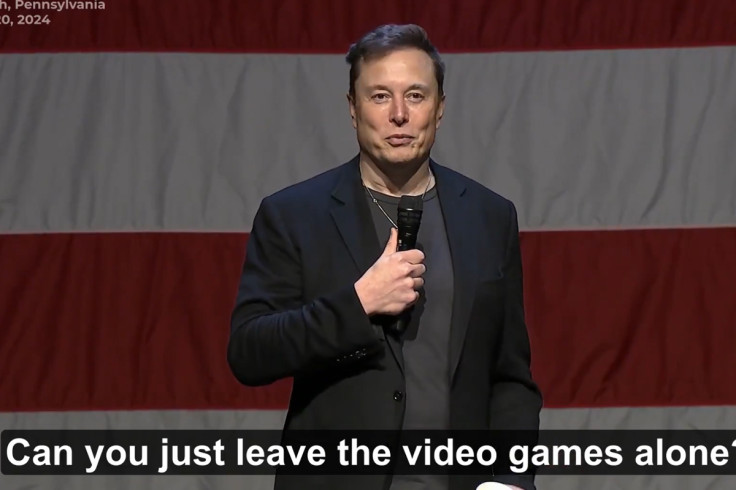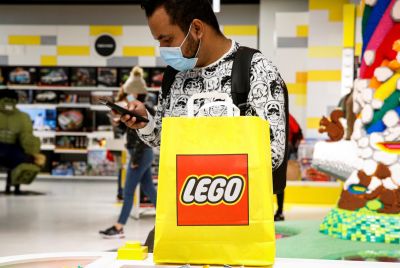Elon Musk Says 'Pronouns In Fantasy Games Are Utterly Unacceptable': Failure Of 'Woke' Games Proves It
Musk emphasised the success of non-political games like Black Myth: Wukong

Billionaire entrepreneur Elon Musk has turned his attention to the gaming industry, sharply criticising the increasing prevalence of "woke" agendas in modern video games. Musk, who is no stranger to controversy, recently took to X (formerly Twitter) to express his disdain for the trend, highlighting how games infused with progressive themes have failed to resonate with players.
Musk's Critique of Pronouns in Gaming
In a series of posts, Musk openly attacked the inclusion of pronouns in fantasy games, labelling it "utterly unacceptable". His comments were prompted by a post from former video game executive Mark Kern, who highlighted the use of pronouns in the upcoming role-playing game Avowed. Kern described the move as symptomatic of a "woke mind virus," urging gamers to reject such trends. Musk amplified Kern's sentiments, stating that the presence of pronouns in such games detracts from their artistic integrity.
Per a video shared by Elon Docs, Musk also criticised interruptions in gaming experiences caused by what he called "DEI woke bullsh*t," referring to diversity, equity, and inclusion initiatives. Musk argued that such elements disrupt the immersive nature of video games, stating, "You do not want to do things that damage art. It breaks you out of the story."
The Downfall of 'Woke' Gaming
Musk's criticism comes amidst a broader cultural backlash against political messaging in video games. This sentiment has been mirrored by failures in the gaming industry, where several "woke" titles have flopped spectacularly. Among the most notable examples is Concord, an online multiplayer game developed by Sony. According to Ryan Watterson, an AI expert and filmmaker, the game's failure was due to its overtly ideological themes that alienated its target audience.
Watterson observed that Concord struggled to attract players not because of gameplay issues but because its marketing and narrative clashed with gamers' values. "No one wanted to be caught dead playing or supporting it," he remarked. Similarly, other titles such as Dustborn and Suicide Squad have been criticised for prioritising political messaging over player satisfaction.
Industry Backlash and Financial Consequences

The failures of games like Concord and Dustborn are emblematic of a broader miscalculation within the industry. Per reports from Mario Nawfal, host of the Largest Show on X, Concord failed to maintain even 100 concurrent players, while Dustborn peaked at a dismal 83 players. In stark contrast, Black Myth: Wukong, a non-political game, sold 10 million copies within three days of release, showcasing the significant gap between player expectations and the industry's current direction.
Nawfal summarised the issue succinctly: "Gamers want content, not ideology." He argued that games steeped in political narratives often fail because they neglect the core audience—predominantly young, multicultural men—who are drawn to gameplay and storytelling rather than divisive messaging.
Watterson echoed this sentiment, stating that developers are wasting massive budgets on games that cater to ideological agendas rather than consumer demand. He likened these efforts to "taking Marvel-sized money to fund Pureflix-level projects," warning that continued failures would shrink budgets and leave room for competitors who understand market realities.
A Cultural Turning Point?
The backlash against "woke" gaming may mark a turning point for the industry. Players are increasingly demanding that developers return to the fundamentals of engaging gameplay and creative storytelling. According to FandomWire, Musk's criticism has resonated with fans who are eager for games to focus on entertainment rather than activism.
As failures like Concord and Dustborn continue to pile up, the gaming industry faces a critical choice: adapt to player preferences or risk further financial and reputational damage. For now, Musk's statements have amplified the call for developers to abandon divisive themes and prioritise the art of gaming itself.
© Copyright IBTimes 2025. All rights reserved.






















